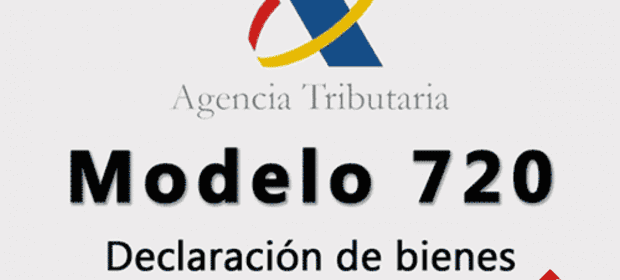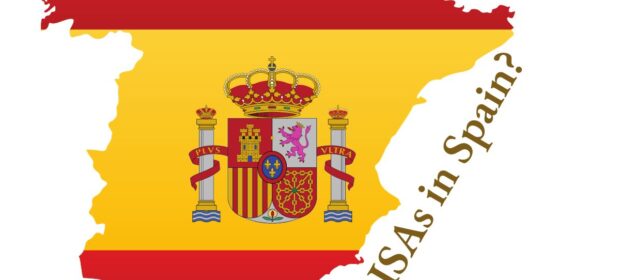Thank you Deano, glass of wine in one hand and that mellow voice. Don’t worry this older, hopefully wiser Financial Adviser is a bit like that glass of wine, it mellows. Without a doubt, there have been immense changes in both my industry and life.
Memories are made of this
By David Hattersley
This article is published on: 12th March 2024

I started in the industry in 1987,at a time of rapid change. Privatisation, deregulation, right to buy, the “Big Bang” in the City, personal pensions, PEP’s, ISA’s, etc.
Changes in other fields occurred eg. traditional Optical Practices were challenged by a retail outlet offering a greater range of inexpensive glasses. It is now a global brand company. If you can’t read this, you should have gone to ……… !!! Many non Ophthalmic opticians came to own their own franchises and prospered. I dealt with quite a few.
Technology was advancing rapidly. Remember the 1st so called mobile phones? Massive batteries- if you tried to take it on board a plane as hand baggage today a budget airline would say too heavy, and charge you for hold luggage.
My 1st lap Toshiba laptop was used to provide illustrations. The games, awesome! Ping pong and zapping those little creatures coming down from the top. Microsoft was starting to lift off. Search engines were becoming available – eg “Ask Jeeves”.
Papers were full of financial news and even ”the Sun” had a page. No br…ts on that page! There was “Spitting Image” with a fair portrayal of some sectors of the press. A former CEO of a major financial services company told me that he ignored the “daily’s”, and only read the weekly addition of the FT on Saturday. The devils in the detail, so a “fad” can be created by misinformation & lack of due diligence. An example of a “fad” was the Dotcom crash, with “mates in the pub” telling their friends how much they had made. Basic fundamentals were not considered, greed came to the fore. I advised my clients not to purchase these assets, was ignored by one client and sadly he lost money. I experienced other so called opportunities where my advice was ignored and money was lost.

It wasn’t only with individuals where mistakes were made. Less regulated mortgage lending along with Lawson’s last budget in 1998 stopped additional mortgage tax relief to each single unmarried couple. House prices continued to rise in what was already a bubble, but slowed in 1989 and began falling. Then ERM. That crash lead to negative equity and a recession,& the demise of the Major government.
Then Blair was in charge. Cool Britannia, the fall of the Soviet Union, continuing Globalisation, 9/11, and subsequent wars. The banking crisis of 2007, resulted in chaos. Relaxation of regulations, greed, lack of understanding, due diligence and negligence were major contributory factors.
Quantitative Easing was introduced 2008 -2012 leading to a reduction in interest rates. It did not prevent recessions in many parts of the world, but gradually economies began to recover.
The last 4-5 years have been challenging, Covid, war in Ukraine, Gaza, slowdown of growth in China, politics dividing countries, Brexit, looming recession in some countries. It may seem that its never ending but these things are cyclical. It doesn’t matter where the recession is, there is always someone that benefits from it. Warren Buffets quote “When everybody’s being greedy, be fearful, when everybody’s being fearful be greedy”! Apply that to the many of examples I’ve already mentioned this quote certainly rings true.
What I do is simple, nothing has changed the process. Better regulation makes it more complex and detailed, but is that a bad thing? I don’t think so. My role is to understand clients objectives, and help them navigate the complexities. Levels of risk/reward need to be considered. Annual reviews continue the process taking into account any potential changes. Dealing with an ageing population needs compassion, understanding and patience.
Looking back, nothing really changes in my chosen field, life does not follow a straight line and is often unpredictable. Investment should always be based on the long term, short term knee jerk reactions should be avoided. I still love what I do after all these years, it’s in my blood, so please feel free to contact me to arrange a no obligation meeting over coffee.
Do you need to submit a Modelo 720?
By Barry Davys
This article is published on: 16th January 2024

Do you need to submit your M720 to the Hacienda before 31st March?
If you have assets outside of Spain you may need to report these to the Spanish tax man on the Modelo 720. In effect it is a “census” as it does not trigger any payment of tax. However, it does help the Hacienda cross check information.
If you have bought or sold an overseas asset in the last calendar year, you may need to submit a M720, even if you have previously submitted a form. Also, if the value of your overseas assets have increased by more than 20,000€ since you last submitted a form you may also need to re-submit. If the answer is “Yes” you must submit your form before the 31st March.
Here is a link to the obligation to report on the Agencia Tributaria (Hacienda) website which lays out if you need to report your bank accounts, investments and properties that are outside of Spain. Google Translate does a good job of translating this, if needed.
You may have seen in the press that the European Court ruled on the M720 rules. I am pleased to report that the fines for non-reporting or mis-reporting have been struck out by the court and new, much lower, fines will be put in place.
Please note that we are seeing articles saying the M720 is no more. This is not the case. In fact the court, whilst removing the very high fines, also said in it’s ruling that they could see the need for the M720.
Please feel welcome to email me if you have any queries about your Modelo 720. If your query relates to share options and the M720 you can choose a time that is convenient tor you for a call using my online system.
Are there ISAs in Spain?
By Chris Burke
This article is published on: 14th January 2024

When living in Spain it shouldn’t take too long to discover that personal finances work very differently from many other European countries, particularly the UK. Independent advice is hard to find – most people talk to their bank and are told that their main option is to invest in the bank’s own standard products and solutions, which for many people are not suitable or appropriate.
Many people from the UK are used to a more sophisticated way of investing, maximising tax efficiency and mitigation through solutions such as ISAs and pensions. These can greatly reduce the tax you pay making a big difference to the amount of money you end up with, in some cases incredibly so.
Is there a Spanish equivalent of a UK ISA?
In short, there is something very similar. It can greatly reduce the tax you pay as your investment grows and can even be set up for your children to benefit independently.
Are there Spanish equivalents of a private pension in Spain?
Yes, there are, however these are vastly different to in the UK. In the UK you can contribute up to £60,000 per year to a private pension. In Spain you can only contribute €1,500 per year. A self-employed person can contribute an additional €4,250 per year. Very few employers in Spain have their own pension schemes and those that do have a limit of €10,000 per year that can be jointly contributed to.

How does the equivalent of the UK ISA in Spain work?
As your money grows any gain you make is not taxable until you receive this money (achieving compound growth). When you access this money, any gain is offset proportionally against the original investment amount, and as such removing this proportion of the gain. For example, if your investment grows by 50%, any partial withdrawals you make have this portion deducted against the gain you have made. Over the years this can make an incredible difference to the tax you pay, particularly as this investment income falls under Capital Gains tax (savings tax) and not income tax, which can become VERY important when paying tax on your monies (pension income falls under income tax).
As a reminder, the tax rates are:
Capital gains tax ranges from 19-26%, income tax from 24-47%.
Many people use this option for their mid-term and retirement planning because they have some flexibility, are portable should you move elsewhere and are also highly tax efficient and compliant in Spain.
Important note on UK ISA’s
Whilst UK ISAs are tax efficient in the UK (all gains are tax exempt), as a Spanish tax resident this is not the case – any gains that arise in your UK ISA must be declared annually and tax paid on these even if you do not access the money. This makes UK ISAs as a Spanish tax resident very inefficient and why many people look for alternatives.
UK ISA Tip when moving to Spain
Before you become a Spanish tax resident, if you encash your UK ISA you realise any gains that would be taxable when you become a Spanish tax resident. This not only includes any annual gain, but more importantly the gain from inception, which as a Spanish tax resident you would be liable for when you encash.
If you would like any more information regarding any of the above, or to talk through your situation initially and receive expert, fact based advice, don’t hesitate to get in touch with Chris.
Click here to read independent reviews on Chris and his advice.
Interest in deposit accounts
By John Hayward
This article is published on: 11th January 2024

Timing when to invest for long term needs is trickier than solving a Rubik’s Cube wearing boxing gloves

As we enter a new year, we face another year of known and, so far, unknown global problems which could impact our finances. Many “experts” will guess and then advise us what will happen but, as so often in the past, be wrong, or lucky if the guess works out to be true. The world is governed by a handful of people. Therefore, there are very few who really know what is happening.
Fortunately, in the Western world at least, we are allowed to get on with our lives with an element of freedom. As financial advisers, especially as old as me, we can make some judgement based on how people react to global events. Some people over react, fed by questionable journalism. In the investment world, this leads to the wealthy becoming wealthier aided by panic selling by the less wealthy enabling the wealthier to buy into the market at a lower cost.
2022 was a rotten year overall for investments. 2020 was not great but people then were more concerned about living with Covid-19 than what was going on with their money. Stock and bond markets both had a torrid time, mainly as a consequence of Covid-19 which introduced high inflation once we had a chance to spend money again. A consequence of this was a reluctance in 2023 to commit to investing at a time where inflation was rampant. History has shown us that investing in traditional markets can overcome inflation. With high inflation came attractive interest on cash, something that we had not seen in decades. Back to the history book and we see that interest rates on deposit accounts have not outpaced inflation over the long term. However, the expression “long-term” seems to disappear from the vocabulary of some investors and short-term problems become the index to follow. Many have caught the interest rate bug over the last few months feeling that doing this would be sensible in the short term and then switch into investment markets when the time is right(?). Paraphrasing Jim Bowen of Bullseye fame, “Let’s look at what they could have won” had they not taken this approach.
Let us look at two different examples of investors. One who was invested on 1st January 2022 with 50% in the Rathbone Strategic Growth fund and 50% in Aegon High Yield Bond fund who decided to sell on 31st December 2022 due to the downturn in 2022 and another who was thinking about investing on 1st January 2023 but decided not to. In both cases, they eventually put their cash into a deposit account with a fixed rate of 5% (for 12 months) in July 2023.
| 1/1/22 to 31/12/222 | 1/1/23 to 31/12/23 | |
| Rathbone and Aegon | -9.10% | 11.45% |
The person who sold from the two funds at the end of 2022 was 9.10% down for the year and only recouped 2.50% (6 months at 5% p.a.) by the end of 2023 instead of 11.45%.
In a similar way, the potential investor, who was holding off until things improved, missed that particular bus. Again 2.50% versus 11.45%. I appreciate that there are underlying charges with our products but nowhere near 9% a year and there are also tax considerations with the deposit account being taxed annually whereas the Spanish compliant bonds that we promote have tax deferred, if not completely negated.
Very few are smart enough or knowledgeable enough or lucky enough to time markets correctly. In the last year we have seen this proven once again.
When I tell people that they should be prepared to leave their money invested for at least 5 years, I often get the response that they are not young and that they may not survive 5 years. In a region such as the Costa Blanca where I live, with 300 plus days of sunshine a year and plenty of olive oil, the risk people face is living too long! In the “good old days” when the life expectancy was 65 or less, long term care and dementia were not a consideration. Making money work over the long term is not only a good idea but possibly essential.
We have products that can work with you and your family throughout your life, and beyond. Following the scaremongering headlines is not a great idea and can be very harmful to your wealth, and your health.
I know that it is possible to solve a Rubik’s Cube wearing boxing gloves but try it.
Livret A : Protection ou illusion face à l’inflation ?
By Cedric Privat
This article is published on: 5th December 2023

«Vous voulez faire fructifier votre épargne de manière sécurisée et sans payer d’impôt ? Vous pouvez ouvrir un livret A». source site officiel de l’administration française.
Avec pas moins de 56 millions de livrets A comptabilisés à fin 2022, cette publicité semble avoir séduit les Français, mais qu’en est-il réellement de ce placement dont le taux d’intérêt est fixé par l’État ?
Le livret A est le placement préféré des Français. Huit Français sur dix le détiennent et ils ont déposé près de 26 milliards sur ce produit d’épargne sur les six premiers mois de l’année 2023. Du jamais vu…
Le Livret A est un placement sûr et liquide, ce qui signifie que vous pouvez retirer votre argent à tout moment sans pénalité. Le ministre de l’Économie et des Finances, Bruno Le Maire, a récemment fait le choix de maintenir son taux de rémunération à 3% soit l’assurance de bénéficier d’un taux fixe jusqu’en 2025.
Malgré son succès, ce produit d’épargne est souvent critiqué pour sa faible rémunération.
Ci-dessous un comparatif des 5 dernières années face à l’inflation :
| Années | Taux annuel du livret A | Taux d'inflation |
|---|---|---|
| 2023 | 2.92% | 5.60% (prévision Banque de France) |
| 2022 | 1.38% | 5.20% |
| 2021 | 0.50% | 1.60% |
| 2020 | 0.52% | 0.50% |
| 2019 | 0.75% | 1.10% |
Sources: Banque de France, Insee
Récemment, le gouvernement a dérogé à la formule de calcul fixant son rendement, calcul qui aurait potentiellement amené le taux à plus de 4%.
Le Livret A ne protège donc pas les Français d’une perte de pouvoir d’achat, et ne constitue pas un “rempart” contre l’inflation. Le taux réel étant négatif, l’argent placé perd de sa valeur au fil du temps.
Le livret A reste pertinent pour certaines situations
Par nature, le Livret A étant garanti, son rendement est faible. Mais malgré sa faible rémunération, il peut toutefois convenir à certains épargnants.
Il est simple, accessible à tous et garantit un capital entièrement disponible à tout moment.
Il permet de limiter le phénomène d’érosion monétaire pour ces sommes épargnées à court terme, afin de faire face à des besoins exceptionnels.
Le livret A est conçu pour constituer un matelas de sécurité. Il est recommandé de laisser sur son Livret A une épargne de précaution correspondant à 3 à 6 mois de dépenses courantes, de manière à faire face aux imprévus.
Quelles alternatives ?
La réponse dépend principalement des objectifs d’épargne, de la disponibilité recherchée et du profil de risque de chacun.
Pour les épargnants prêts à accepter un peu plus de risque et limiter la disponibilité quelques années, il existe des placements offrant de meilleures perspectives de rendement.
L’assurance-vie (produit le plus diversifié), le placement en actions (le plus dynamique) ou les SCPI (le plus stable) seront les options les plus cohérentes.
Le pouvoir d’achat est au centre des préoccupations des français et l’investissement est un moyen qui permet réellement de se prémunir de l’inflation et de construire ses projets d’avenir. L’épargne et l’investissement ne répondent pas aux mêmes enjeux.
Lorsque l’on dispose a minima de trois ans devant soi, il est inutile de laisser dormir cet argent, que ce soit sur un compte courant ou sur un livret.
N’oublions pas ce principe phare de la finance : il n’y a pas de rendement sans risque.
Le groupe Spectrum à Barcelone se propose d’étudier gratuitement votre situation afin de vous aider, de vous conseiller, de vous orienter ou de vous guider dans vos démarches patrimoniales.
N’hésitez pas à nous contacter afin d’obtenir les réponses d’un professionnel aux questions que vous vous posez.
Reduction of Succession and Gift Tax in Valencia
By John Hayward
This article is published on: 29th November 2023

Making gifts to spouses is no longer a tax worry.
In September, the Valencian government approved the draft bill reducing succession tax (Inheritance tax) and gift tax for certain beneficiaries
The reasons were that the taxes formed a very small part of the region’s revenue and many people were refusing inheritances as the tax worked out to be more than the overall benefit. Does the son or daughter in the UK really want to inherit the casita in the campo housing pigs and chickens?
We have had to wait for the bill to become law and this occurred on 24th November 2023 taking effect from 28th May 2023, the date that Carlos Mazón was elected president of the regional government of Valencia as leader of the Partido Popular. The backdating of this law is significant for beneficiaries who are dealing with deaths and inheritances since 28th May.
It is important to understand that the taxes for certain beneficiaries have been reduced but not abolished. The reduction in the tax has increased from 50% to 99% of the tax bill. This reduction applies to Class 1 and Class 2 beneficiaries and includes the proceeds of life insurance. These classes cover children, grandchildren, adoptees, parents, grandparents, adopters, and spouses. The €100,000 allowance per qualifying individual beneficiary (up to €156,000 for children under 21) will remain.
Suggesting that it is a better time to die now may sound a little crass but it would appear to be a very good time to make gifts, taking advantage of the gift tax reduction and mitigate future succession tax. Another important aspect to gifts is that they need to be formally documented.
Over the last 10 years, Valencia has changed the basis of succession and gift tax on a number of occasions. There was a 99% reduction before. This fell to 75%, then 50%, and is now back up to 99%. Therefore, it is reasonable to suggest that there could be changes to the law again.
Strangely, before these revisions, spouses in the Valencian Community did not receive an allowance on gifts and this caused a problem when planning financial structures. Spouses in the Valencian Community are now eligible for the allowance of €100,000 on gifts along with the 99% reduction on the tax on any excess. In my case, the “What’s hers is hers and what’s mine is hers” principle still applies.
Contact me to discuss ways of reducing the tax liability for those you care about no matter what the law is at the time.
Arts Society de La Frontera
By Charles Hutchinson
This article is published on: 23rd November 2023

The Spectrum IFA Group again co-sponsored an excellent Arts Society de La Frontera lecture on the 15thNovember at the impressive San Roque Golf & Country Club on the Costa del Sol. We were represented by one of our local and long-serving advisers, Charles Hutchinson, who attended along with our co-sponsors Currencies Direct represented by Ignacio Ortega and Carol Schleisman.
The Arts Society is a leading global arts charity which opens up the world of the arts through a network of local societies and national events throughout the world. With inspiring monthly lectures given by some of the UK’s top experts, together with days of special interest, educational visits and cultural holidays, the Arts Society is a great way to learn, have fun and make new and lasting friendships.
At this excellent event, over 80 attendees were given a talk on The Real Richard III by Tobias Capwell. Tobias is the curator of Arms and Armour at the Wallace Collection in London and an internationally acknowledged authority on Medieval and Renaissance armour and weapons. He is the author of numerous books on the subject and has been involved in many television programmes on BBC4 and Channel 4. In 2015, Toby had the unusual honour of serving as one of the two fully armoured mounted knights escorting the remains of King Richard III from the battlefield of Bosworth Field to their final resting place in Leicester Cathedral.. It would be no exaggeration to say that his lecture was incredibly gripping and interesting and at times very amusing. His knowledge of his subject was responsible for him being closely involved in the recent feature film “The Lost King” together with all the TV programmes of how they found and identified the king’s remains.

The talk was followed by a drinks reception which included a free raffle for prizes including CH supplied book The Search for Richard III and a large decorative candle. Currency Direct also supplied a Cava presentation case and 2024 diaries.
All in all, it was a very good turnout and a successful event at a wonderful venue. The Spectrum IFA Group was very proud to be involved with such a fantastic organisation and we hope to have the opportunity again at the February 2024 lecture.
UK term deposit rates as a resident of Spain
By Jeremy Ferguson
This article is published on: 1st November 2023

This is something I am being asked a lot at the moment, as so many of my clients have money on deposit in UK banks.
Many of them are offering healthy fixed term deposit rates at the moment to clients, but very often my experience is the bank will only allow customers who live in the UK to place cash into these term deposits. This only tends to come to light after speaking with them for ages on the phone to try and move your cash, after which they will very often ‘reject’ your request due to the fact you live here in Spain. Some banks are OK with that, but the majority are not.
There are also a few ‘downsides’ to these term deposits when you are a Spanish tax resident. To explain; if you were to invest in a 1 year term deposit offering 5%, then this will of course be taxed here in Spain at maturity. The complication comes with the fact that you have to file your tax returns in Euros. Imagine if you placed that one year deposit today, maturing in a year’s time in November 2025, and then assume a scenario where the exchange rate recovered from the 1.14 ‘ish’ we are seeing at the moment to 1.18 by the end of next year, (which is entirely feasible). You would have to declare the 5% yield in euros, which would end up at approximately 8.5% in this example. Tax will then be due on this amount, having the effect of significantly reducing your actual ‘profit’.
Of course it could go the other way but this is an issue, as each year the fluctuations can ‘disturb’ the actual amount you receive. This has only really come to light this year, as people have just not experienced yields on cash deposits for such a long time.
There is also of course the risk of placing your funds with the bank you chose, or institutional risk. The compensation scheme in the UK most people are familiar with will cover a deposit loss up to £85,000 per individual account. To utilize this as best you can it can get messy trying to hold money in many different banks. The reality for most people I deal with here is they tend to have a UK bank account from when they lived there. To try and open a new UK account when you live here is nigh on impossible, so spreading your risk by having a number of different accounts isn’t achievable.

However, a solution which deals with most of these issues is available. Without getting into too much detail, you can invest in a cash ‘fund’ run by one of the World’s biggest Investment Companies. Your money ends up being invested with nearly 200 underlying banks within the fund, so the risk of a bank failure is massively reduced.
Using the right structure to access this fund means you don’t have to pay tax on an annual basis as this will only be due when you cash in your investment, and therefore each year there is no need to consider the complications of the exchange rate issue touched upon earlier.
If rates were to rise further the fund will automatically take benefit from that, and so your ‘cash’ is being actively managed with no need for you to be doing anything.
The suitability of this solution of course depends on each person’s individual circumstances, but if you would like some more information, please do not hesitate to get in touch on the form below.
Top tips for expat finances | Spain
By Chris Burke
This article is published on: 10th October 2023

The clocks go back in a few weeks, so enjoy the last of the summer evenings before its time to get the winter wardrobe out and get cosy!
This month’s Top Tips are as follows:
- Wills – Why almost everyone should have one
- How to build a pension in Spain, quick example
- Why have your investment in a tax ‘Wrapper’ rather than an investment platform?
Wills – why almost everyone should have one
If you die whilst living in Spain or owning property/assets here, the expression is known as dying ‘intestate’. To quote why you should not want this to happen (apart from the obvious!) the Law societies words are as follows:
“Dying intestate not only means your final wishes will probably go unheeded, but the financial and emotional mess is left for your loved ones to sort out. This need not be your final legacy.”
So, if are not bothered about the administration you leave behind, the only circumstances under which I would suggest you might not want a Will (I still think you should, but it’s your choice) are if you are single or married with no children.
If you have children under the age of adulthood, in my professional opinion there are no excuses for not having a Will for the following reason: God forbid something should happen to both parents, how would the law know who you would want them to be raised by and how? Those left behind (grandparents for example) may not agree with your wishes but they should respect them. Imagine if you didn’t stipulate and the state decided against your families wishes………………….

Building a pension in Spain, quick example
“Chris, I want to save for retirement but I note the annual amount you can save into a private pension in Spain is €1,500, what options do I have?”
Well, some people tell me they could overpay into the state pension to obtain more, I say good luck with that. One of the ways they now calculate this is the average of the last 25 years of your salary/income, so the days of a great Spanish state pension for most are over.
I could go into great depth here but for ease’s sake, the following saving / investing example could give you an income of approximately €25,000 per year, so along with a full UK state pension that would give you a total income of approximately €38,000 per year and hardly any tax to pay:
- Initial investment of €50,000
- €2,000 per month contribution for 20 years
- Total investment value at the end: €926,247.78
I did say it was quick! This is of course is in tomorrows money (inflation roughly doubles every 24 years). With my clients we go into much more depth and analysis, but it gives you an idea.

Why have your investment in a tax ‘Wrapper’ rather than a platform?
Because of Tax, Tax, Tax!!!!!
Need I say anymore, THE most important aspect to consider as a Spanish tax resident.
When you withdraw money from an investment platform you are taxed on the ‘profit’ you take out. So, for example you start/invest €100,000, it grows to €120,000, you withdraw €10,000, tax is payable on the €10,000 as that is profit.
However, with a ‘tax wrapper’ you pay a different tax, Spanish Proportional tax, which is calculated by the following formula:
Initial investment amount, divided by current investment value, multiplied by the amount you are withdrawing.
So, to copy the above example, you start/invest €100,000, it grows to €120,000, you withdraw €10,000, tax is payable on the gain proportionally which is calculated the following way:
€100,000 divided by 120,000 multiplied by €10,000 = €8,333.
This €8,333 is the amount tax exempt, so you are ONLY taxable for €1,666 as opposed to €10,000 for an investment platform gain.
You can also add Children over the age of 14 to Tax Wrappers who benefit from this in the future, as well as partners/spouses. So, the additional cost of the Tax Wrapper can more than outweigh the tax savings over time.
Some of today’s Tips can be quite complex, if you are not sure don’t hesitate to get in touch.
1980’s advert
For those of you who don’t know me that well, I am a bit of an 1980’s fan. I was brought up on prawn cocktail, roast beef with all the trimmings and trifle for pudding. I still even now listen to 1980’s music channels………anyway, I am going to share each month some of my favourite TV commercials from back then until you tell me to stop OR I get inspired with something else!
Looks like we’ve overdone it on the…………
Click here to read independent reviews on Chris and his advice.
If you would like any more information regarding any of the above, or to talk through your situation initially and receive expert, factual based advice, don’t hesitate to get in touch with Chris.
Let’s deal with the facts
By Paul Roberts
This article is published on: 9th October 2023

Over the summer I read a fascinating book called ‘Checklist Manifesto’ by Atul Gawande. It’s a book about how the systematic use of checklists can help improve outcomes in a wide range of activities.
Gawande, a surgeon, explored the use of checklists in medical procedures and found that developing and complying with detailed checklists has an extraordinarily positive effect on medical outcomes. His book is well worth a read – some of the sections that describe how problems arise and are dealt with when things go wrong in an operating theatre or a cockpit on a passenger flight are truly incredible.
It is an unlikely page-turner, with a lot of practical examples of how adopting good working practices can have a hugely positive effect on outcomes. Here is one example;
In 2001, Peter Pronovost, an intensive care specialist at John Hopkins Hospital, was frustrated with the incidence of central line infection in intensive care. He created a simple checklist of the steps that needed to be taken to prevent infection.
As simple as the steps look, the ICU nurses noted that doctors were often in such a hurry that they ignored a step or two. With this information, Pronovost persuaded the hospital administration to allow nurses to prevent doctors from putting in central lines if they ignored a checklist step.
The nurses were also encouraged to ask doctors every day if they could remove the patients’ lines so they would not stay longer than necessary.
This step reduced the likelihood of untreated pain from 41% to 3%. Pronovost was described as a “genius” by his colleagues because he had the idea of integrating a task list or a checklist into the daily routine of everyone working in the ICU.
It has been interesting to reflect on the power of checklists and very reassuring to note that at Spectrum we have our own set of checklists that ensure we are disciplined and methodical about how we work. This approach, which we apply as part of our standard business practice, helps to secure positive financial outcomes for our clients.

Let me explain how this works with a couple of simple examples;
All potential clients do a fact-find with us as a first step in our financial planning process. The fact find is our checklist of questions that allow us to see where the person is, financially of course, but also in terms of life-stage, planning priorities, tax situation, etc. We build up a comprehensive picture of individual circumstances, what assets they have and what they are looking to do, well BEFORE we offer any advice.
With Client A, we had spoken at length about what he wanted to do and had agreed on a plan of action. When we got together some time later, I followed our Spectrum checklist and asked him if anything had changed with his situation since we had last spoken and the conversation that ensued filled me with concern. He had been contacted by a boiler room operation that had targeted him and who were in the process of getting him to transfer a high five figure sum into an offshore bank account. It was a scam. I was able to stop this before it went any further. He never made the transfer and he still has the money. I was so pleased that I’d followed the checklist and had done my job properly.
Client B is a young family member who is saving up to buy a house. He and his girlfriend have around 85000€ saved up. I asked him what return he was getting on that money. Answer – zilch. I was able to encourage him to explore the options at their bank on the basis that 2-3% was probably there for the taking, explaining that spending a few hours looking into it and taking some action will be the easiest couple of thousand euros they will earn this year.
These are two simple examples of the value that can be created in my business by following a reliable and clearly defined advice process. At Spectrum we are of course appropriately experienced and authorised for the financial planning services on offer. Beyond that, we care about doing a good job. We always offer a no fee, no obligation, face-to-face fact find meeting to anyone who is prepared to invest a couple of hours in finding out more about the planning opportunities available to them. If prospects go on to become clients, we also arrange at least annual review meetings (again at no cost), to revisit the fact finding exercise and to ensure that our original advice recommendations remain suitable, or where necessary to revise arrangements in response to changes in your circumstances.
As an aside, we know that banks generally don’t call their customer to suggest that surplus cash be placed in interest bearing deposit accounts. They just don’t do this sort of thing, because bank employees work for the bank. At Spectrum we work for our clients.
Please feel free to book an introductory appointment with a financial planner at Spectrum and see where it takes you.



